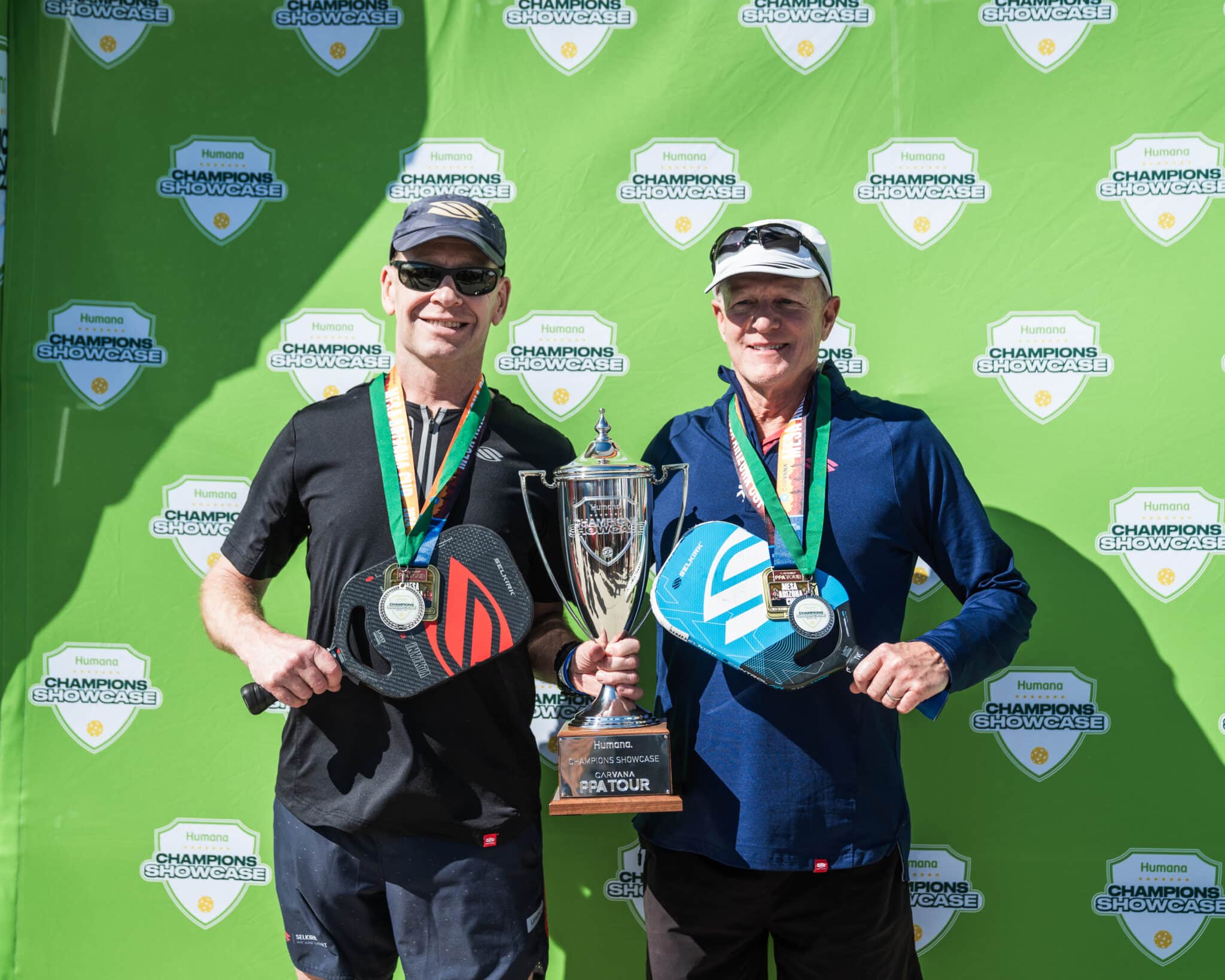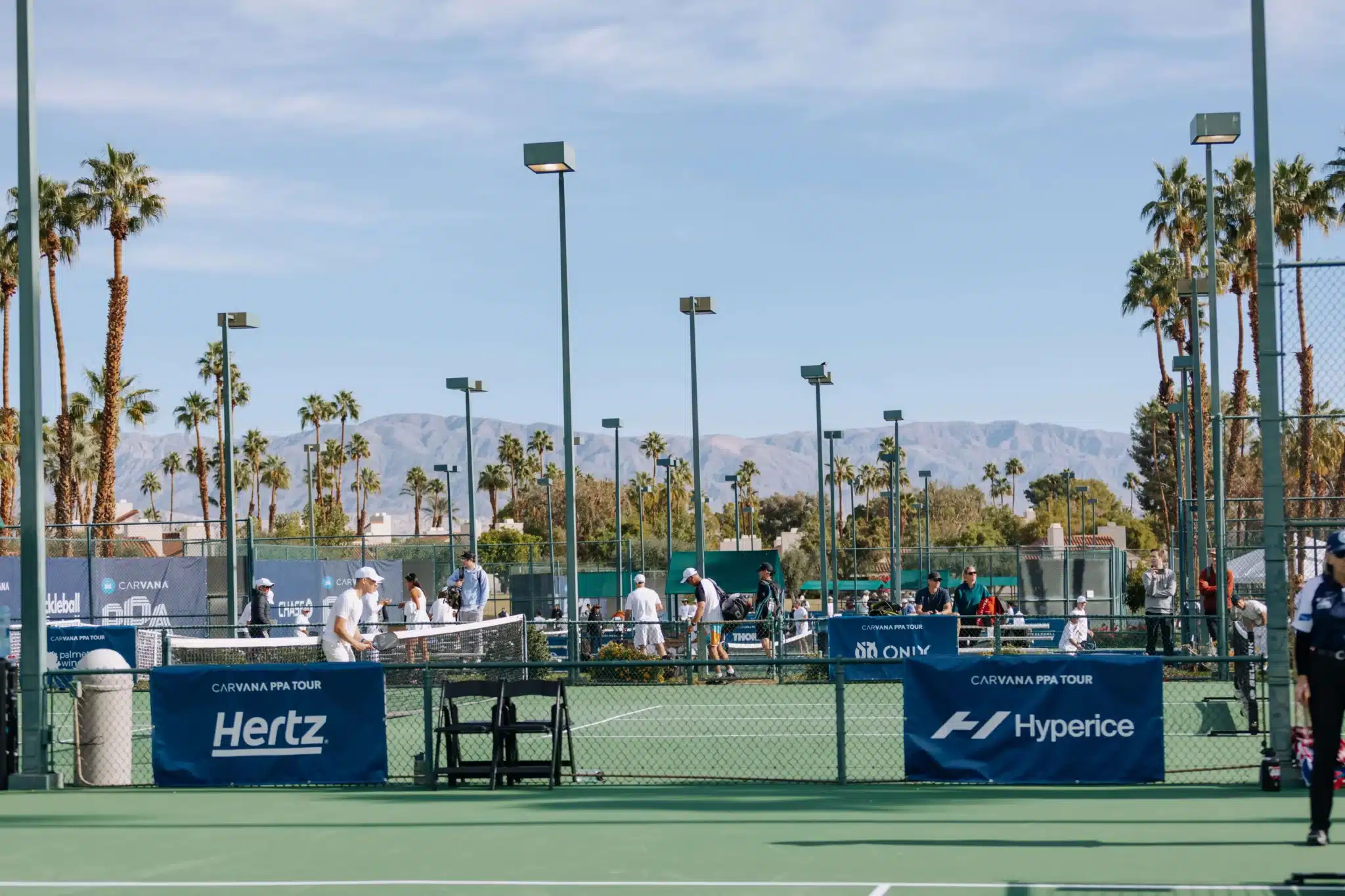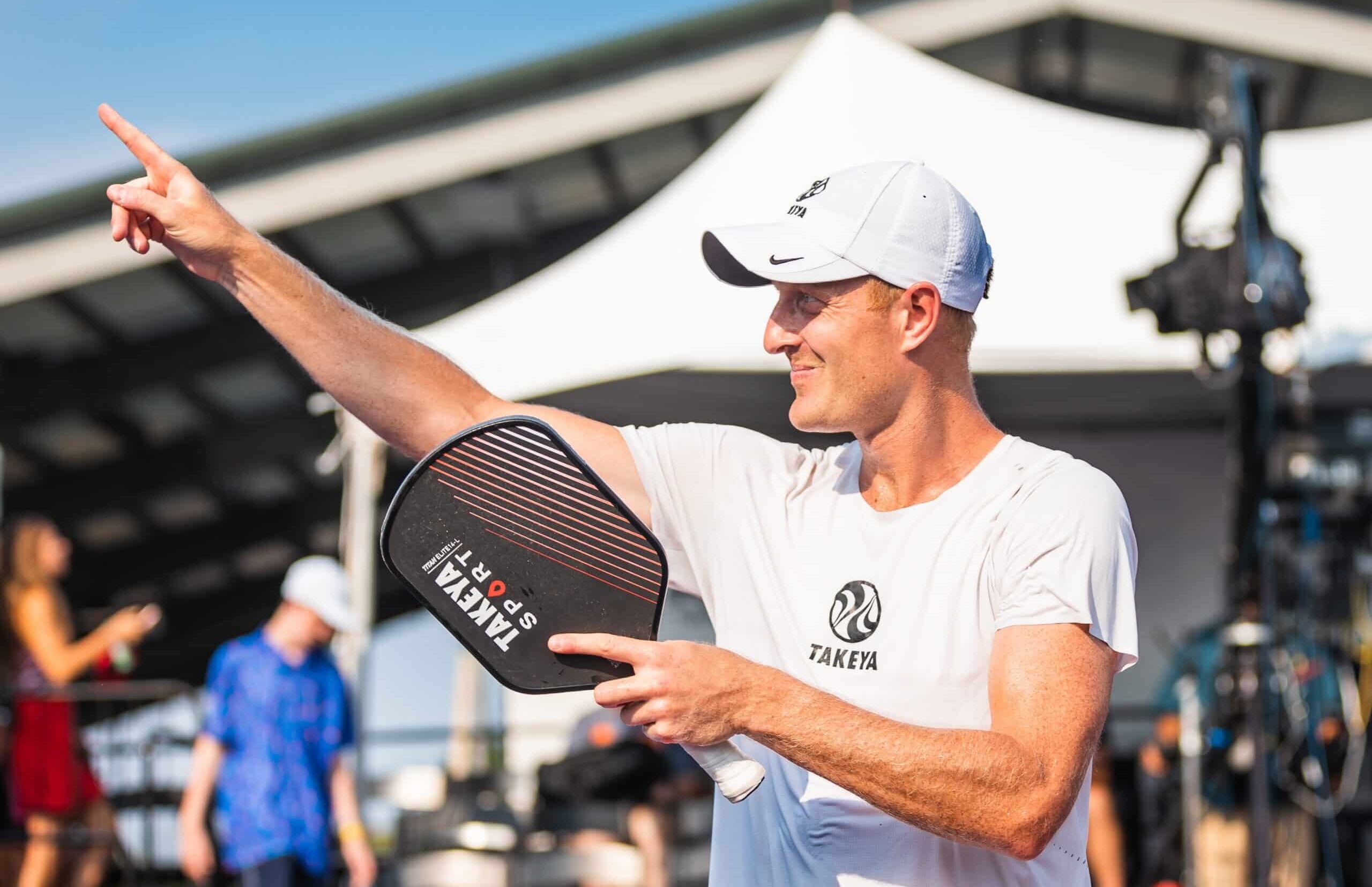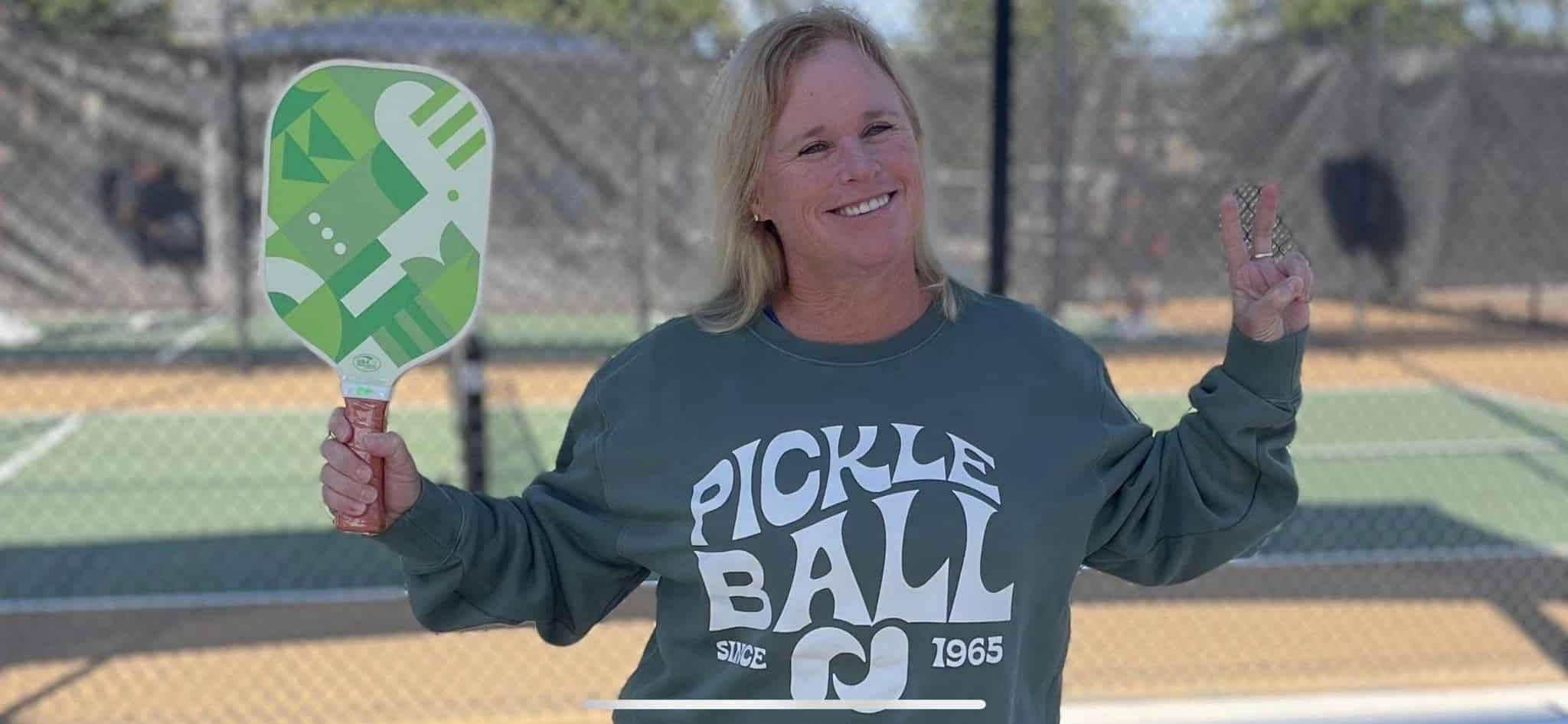What Can You Learn From Watching the Pros?
| July 11, 2023
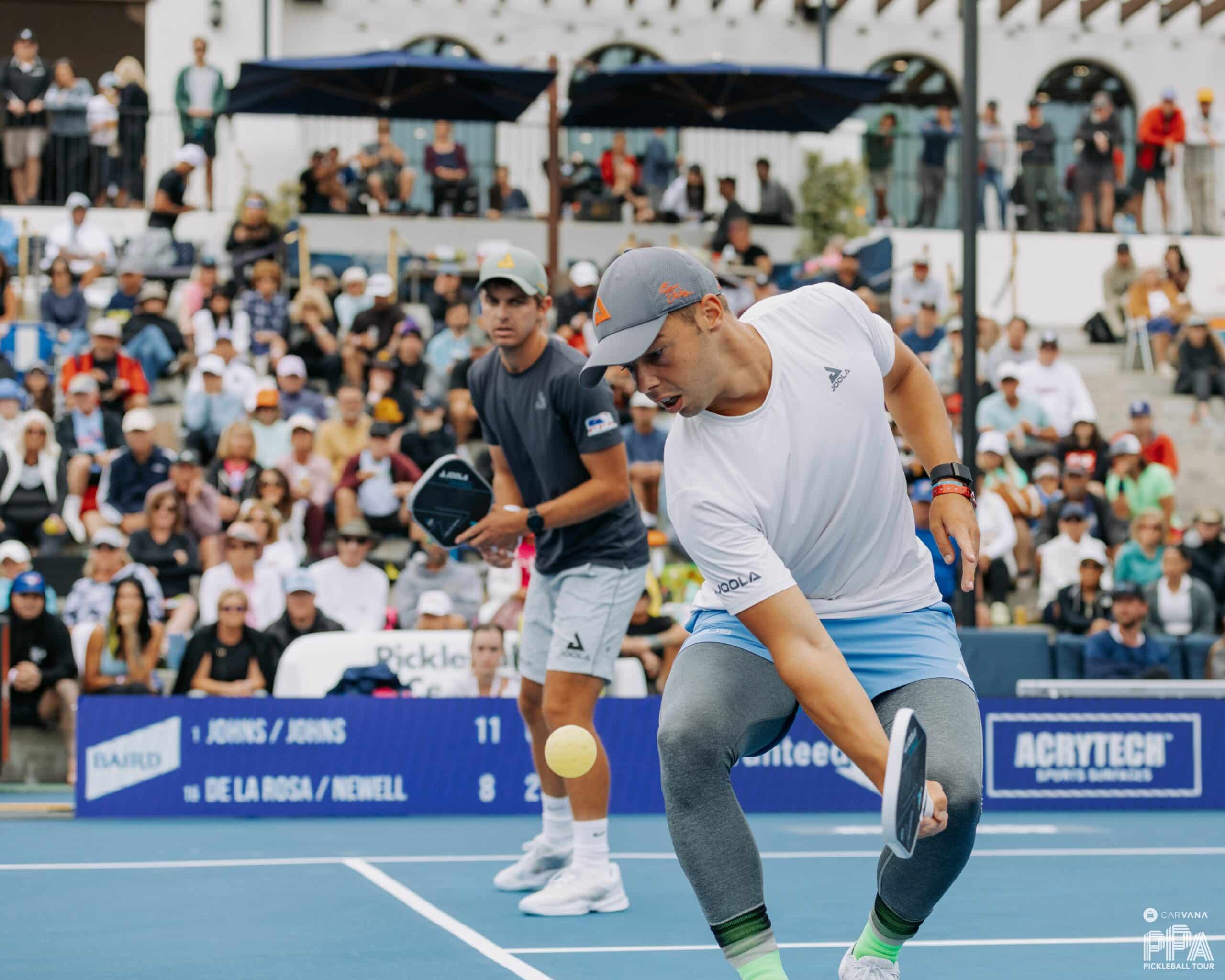
If you’re watching the PPA’s live stream of pickleball tournaments, you’re obsessed.
Don’t worry. You’re among friends, and you’re welcome here in our pickleball world.
And part of being obsessed with playing pickleball is getting better at pickleball. The game is certainly easy to play, but it’s also really difficult to master, so watching the pros is one way to not only get better but to understand a number of different elements of pickleball.
When it comes to watching the pros, there’s no one better to talk to than the PPA Tour’s broadcast team. Dave Fleming, Camryn Irwin, and Drew Fellios have spent hours, not just playing the game, but courtside next to some of the best pickleball players in the world.
Fleming is the PPA’s play-by-play announcer. Irwin is xxx. Fellios is xxx
What can someone watching at home learn by watching a pro match? Here’s what our team had to say about how you can help your game, what you can learn, and what you might be able to take away from watching a PPA event.
Strategy
Irwin: It can be absolutely learned and translated into your game. By watching and listening, you can learn both advanced and intermediate strategies, from technique to game planning. We have great analysts on the PPA Tour who break down matches from start to finish.
Fleming: The shot selection is worth noting. Hitting the right type of shot at the right time, to the right location. If you’re in trouble, you’re not trying to speed up. If you’re in trouble, you’re not panicking.
Fellios: Players with the most-skillful shots aren’t always the ones who make the best in-match adjustments or are the most dependable partners.
Fundamentals
Fleming: There’s an absolute necessity to mastering the fundamentals if you’re a pro. Making your third shot, your serves, your returns. It’s stunning if a pro is struggling with those things. It rarely happens. Watching the pros, you can see those things and realize the fundamentals are a bare minimum to being a pro.
Irwin: Watch the compactness of contact both from the baseline and kitchen line. Watch the efficiency of footwork, with limited steps. Watch how they stop before contact through the transition zone. You can see different styles of kitchen play and dinking, from two-hand backhand rolls to forehand slices. Everything is on display with PPA Pros.
Intangibles
Irwin: You can see from the pros, you’re never out of a match. Even at the professional level, this is a game of momentum and point swings. If you can anticipate that, it allows you to play with a clear, even if you drop a point or two. You can’t allow your emotional state to dictate your decision-making.
Fellios: Attitude and body language are huge. Being as good as you can be is only half the battle. Can you make your partner better as well? Some winning traits that can be learned are consistency and being able to stay the course through adversity.
Fleming: The pros actually aim. The rec player is just hitting the ball. The specificity of contact and where they are putting the ball is remarkable. It’s something the rec player can definitely learn by watching.
What can the average person watching at home appreciate by watching the pros?
Fellios: People are playing pickleball because it is a happy sport and gives off a great vibe. For the most part, PPA Tour players uphold that. It has gotten extremely competitive with increased winnings, prizes, and popularity lately. But altogether, the pros are great examples of what the game should be and how it should be played.
Fleming: What we can appreciate is the speed, pace, and athleticism of these players and the mental fortitude it takes to be able to stay disciplined and play. You can appreciate players and teams who have the discipline to stick to a plan. You can be in awe of how great these athletes are, hitting an Erne, a tweener, or an ATP.
Irwin: You can appreciate how much time pros spend on their game. Not only are they highly skilled, but they are highly consistent. That comes from excessive hours spent on the court. Daily on-court training and physical fitness off the court


